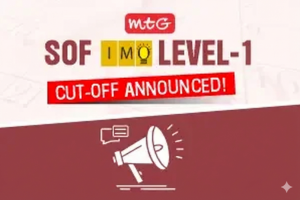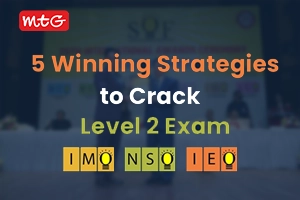
Highlights
- 💡 70% of students find traditional grammar lessons tedious; games offer an engaging solution.
- 💡 Relay Races, Sentence Surgery, and Auctions combine competition with grammar practice.
- 💡 Role-Play Scenarios boost confidence for real-life English conversations.
- 💡 “Who Am I?” game enhances critical thinking and grammar term recall through interaction.
Grammar rules are mandatory for precise writing and effective communication. But most students find English grammar lectures tedious and confusing, and don’t want to indulge in boring worksheets and endless sets and rules.
So, is there only one way of learning it? Of course not!
What if I tell you there is an effective yet exciting way of learning English grammar, especially if you are in foundation classes, like 6 -10. It will make your classroom creative and experimental. In this blog, we are sharing the best five classroom-tested grammar games which work brilliantly for students of classes 6-10 to turn those tedious rules into elated experiments that will help in building some real English skills.
Table of Contents
- 5 English Grammar Games for Classes 6–10
- Bonus Tips
- Conclusion
- Frequently Asked Questions – English Grammar Games for Classes 6–10
5 English Grammar Games for Classes 6–10
1. Grammar Relay Race
Perfect for: Burning off energy and brushing up on sentence structure
How to do it:
- Split your class into two or more teams and line them up like a relay race.
- Write a simple sentence starter on the board, like the cat or yesterday.
- One by one, students from each team run up and add a grammatically correct word to the sentence, building it piece by piece.
- You can give extra rules, like “Your sentence must include a conjunction” or “Use at least one adjective.
Why students love it:
It gets them out of their seats, adds a little competition, and turns sentence-building into a team sport. When sentences become long and quirky, the fun increases.
2. Sentence Surgery
Skills: Sentence correction, punctuation, syntax.
How it works:
- Give students broken sentences on a piece of paper. Using scissors and glue, cut up the sentences and rearrange the words to fix grammar, punctuation, or structure issues.
- You can even add a time limit or assign funny roles like editor-in-chief or punctuation nurse. They will be laughing and learning in no time.

3. Grammar Auction (Sentence Auction)
Skills: Proofreading, error spotting, strategy
How it works:
Hand out fake money and present students with a mix of correct and incorrect sentences. In teams, they bid on the ones they believe are correct.
After the auction, go through each sentence, award points for correct bids, and deduct for incorrect ones. It turns editing into a high-stakes competition.

4. Role-Play Scenarios
Purpose: Real-life English use, collaboration, and functional phrases
How to Play:
Give pairs or small groups a real-world scenario to act out.
Examples:
- Ordering food at a restaurant
- Asking for directions
- Handling a complaint at a store
- Mock job interview
Students prepare and act out the situation using appropriate language.
Why It Works: Builds confidence in real-life communication. You can level up by assigning formal/informal roles or setting time limits.

5. Game: Who Am I? (Grammar Edition)
A quick, interactive grammar vocab game.
How to Play:
- Write one grammar term per sticky note.
- Stick a note on each student’s forehead or back—they must not see it!
- Students walk around asking yes/no questions to figure out what they are.
Example questions:
- Do I describe a verb?
- Am I used to joining sentences?
- Once they guess correctly, they can remove the note or help others.
Why It Works:
- Fun way to review grammar terms
- Encourages critical thinking and student talk
- Perfect for warm-ups, reviews, or early finishers

Bonus Tips
If you are a teacher, then you should remember a few things.
- Keep it low prop: Most games need simple materials such as paper, markers, and scissors.
- Teamwork: Let students collaborate and explain their thinking to each other.
- Use video demos: You can use a YouTube clip to show how the game works.
- Adjust difficulty by class level: Games can be tweaked for both struggling grammar learners and advanced students.
- You can also suggest summer activities at home to make learning fun beyond the classroom.
Conclusion
When English grammar turns into a game, and taught creatively and experientially, it becomes more than just a set of rules. It becomes a tool for expression and confidence. These five games ensure that you can enjoy a grammar class more creatively. Real life application will turn grammar from a boring lecture to an exciting one. You can also try these games at home with your siblings and peers. Whether you are a teacher, a student, or a parent trying to make learning more engaging, these grammar games will be your toolkit for making English more precise and expressive.
Frequently Asked Questions – English Grammar Games for Classes 6–10
1. Why is learning grammar important for students?
Grammar is essential for precise writing and effective communication. It helps students build clear, structured sentences and express themselves confidently in English, both in academics and real-life scenarios.
2. Why do most students find traditional grammar lessons boring?
Many students perceive grammar lectures as tedious due to repetitive worksheets, endless sets of rules, and lack of interactive or practical activities. This traditional approach often feels disconnected from real communication.
3. Are there fun ways to teach English grammar to students in Classes 6–10?
Yes! Classroom-tested grammar games offer an exciting, engaging, and experimental way to teach grammar. These games combine learning with movement, creativity, competition, and teamwork, transforming boring rules into enjoyable activities.
4. What is the Grammar Relay Race, and how does it help students?
The Grammar Relay Race is a team-based, energetic game where students build sentences word by word on the board. It enhances sentence structure skills, encourages teamwork, and adds a competitive edge to learning grammar.
5. How does the Sentence Surgery game improve grammar skills?
In Sentence Surgery, students correct broken sentences by cutting and rearranging words. This hands-on activity improves sentence construction, punctuation, and syntax skills while adding a fun, role-playing element like becoming the ‘editor-in-chief.’
6. What is the Grammar Auction, and why do students enjoy it?
Grammar Auction turns proofreading into a strategic competition. Students use fake money to bid on sentences they believe are grammatically correct, sharpening their error-spotting and decision-making skills in a fun, game-show style format.
7. How do Role-Play Scenarios support real-life English usage?
Role-Play Scenarios encourage students to act out real-life situations like ordering food or asking for directions. This builds functional language use, boosts confidence, and promotes collaboration, preparing students for practical communication.
8. What is the ‘Who Am I?’ Grammar Edition game?
In this interactive game, students guess the grammar term written on a sticky note placed on their forehead or back by asking yes/no questions. It promotes critical thinking, vocabulary recall, and student interaction in a playful setting.
9. Can these grammar games be adjusted for different student levels?
Absolutely! Teachers can modify game difficulty based on class levels, making them suitable for both struggling learners and advanced students. Simple props like paper and markers are used, keeping preparation minimal.
10. Can these grammar games be played at home with family or peers?
Yes, these games aren’t limited to the classroom. Students can play them with siblings or friends at home, making grammar learning collaborative, enjoyable, and part of daily life.





























